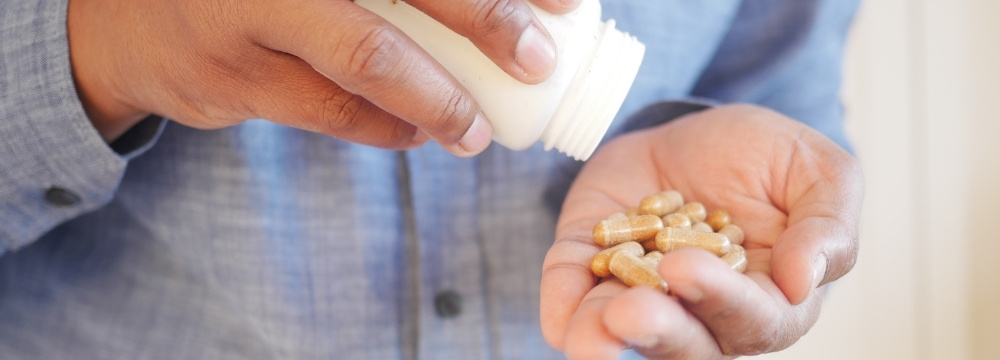Do Pre- and Probiotics Make Any Difference in Weight Loss After Bariatric Surgery?

Pre- and probiotics have been touted as a no-brainer health benefit for anyone, whether undergoing bariatric surgery or not. However, with high prices and questionable ingredients, do these compounds really make a difference for weight loss, and are they the answer to resetting our gut microbiome?
What Are Pre- And Probiotics?
Probiotics are colonies of beneficial bacteria that can be consumed in various forms to regulate and replenish the microbiome and enhance overall health. Prebiotics are indigestible fibers that feed the healthy bacterial colonies living in our intestines. Some believe that probiotics can lead to significant weight loss, and indeed, the gut plays a crucial role in regulating weight.
However, there is a distinction to make. The gut microbiome is a piece of the beautifully complicated gut-brain axis, and healthy microbiota inform not just weight loss but also factors like inflammation that contribute to weight gain and other systemic issues. That said, taking probiotics will not automatically cause weight loss. They are part of a larger picture of whole health.
Being mindful of the foods we consume and choosing probiotics in forms that are bioavailable and evidence-based are important for supporting gut health, and, indirectly, potentially supporting weight loss through anti-inflammatory pathways.
Buyer Beware
To make taking probiotics more palatable (as well as increase marketing and sales), some probiotic manufacturers mix their bacterial cultures into a drink, likely with a yogurt base. These mixtures can vary widely in fat and sugar content, and in some cases, a tiny serving may contain a significant amount of sugar, which can counteract other health benefits.
You may even have seen prebiotic and probiotic sodas on the shelf, claiming to be healthier than traditional soda. And while the claims are largely valid relative to the sugar-laden sodas of old, we know that all artificial sweeteners are problematic as well.
Keeping Good Bacteria Healthy
Fortunately, the flip side of everything mentioned above is that probiotics tend not to cause harm unless they are part of an overly sugary food item. So, yogurts, unflavored and unsweetened, are an excellent option for replenishing healthy bacteria in the gut. (Good brands also sport a healthy dose of protein.) Other probiotic consumables, such as fermented foods like kimchi, or similar beverages, may also be beneficial if their sugar and fat content is relatively low.
Another important consideration is maintaining a healthy balance of existing gut bacteria, with or without supplements. Avoiding highly processed, sodium-filled foods that overwhelm and ultimately neutralize beneficial gut bacteria is a good place to start.
Also worth mentioning here are antibiotics; as the root word suggests, these medications are “against” bacteria, and they do not discriminate. As a global population, we see bacteria around the world becoming increasingly resistant to traditional antibiotics, requiring the options available today to be broader and more potent.
These broad-spectrum antibiotics can eliminate both the good and bad bacteria in your gut. This can lead to real problems, globally as well as for your local flora. As far as your gastrointestinal tract goes, probiotics may help protect and restore beneficial bacteria that antibiotics wipe out. Just make sure there is at least a two-hour window between taking each; you don’t want them to counteract each other. And if you have questions, always default to your prescribing healthcare provider.
What To Do?
Researchers are uncovering new connections between gut bacteria and overall health every year, but we have not yet fully mapped the microbiome or determined the “perfect” balance of bacteria. Individual microbiomes vary based on habits, lifestyle, diet, and even cultural and ethnic backgrounds. Creating a tailored probiotic that is truly effective is challenging at best.
Any product, including pre- and probiotics, should be considered a supplement to a healthy diet, not a replacement for it. Focus on whole, fiber-rich foods, adequate protein, and balanced nutrition, which have the greatest impact on maintaining a healthy gut and supporting weight management after bariatric surgery.
If you do choose to take probiotics, look for products with enteric coating, which protects the bacteria from stomach acid so they can reach the lower intestines. Choose multi-strain formulas that contain clinically studied species such as Lactobacillus and Bifidobacterium, which have shown benefits for gut health and metabolic function. Check for CFU counts (colony-forming units) that are typically in the billions per serving. Finally, consider storage requirements; some probiotics need refrigeration to maintain potency, while others are shelf-stable.
The gut microbiome is a crucial aspect of human health that we are only just scratching the surface of. We just don’t know enough about our microbiota, and therefore, researchers are hard-pressed to draw definitive conclusions about probiotics and weight loss.
However, it’s hard to argue that probiotic foods and drinks low in fat and sugar aren’t potentially beneficial.
We encourage you to consult with our team at Advanced Bariatric and Surgical Specialists to gain a deeper understanding of how to best care for your gut health post-surgery and whether there are any specific recommendations, particularly for weight loss, that may include pre- and probiotics.

